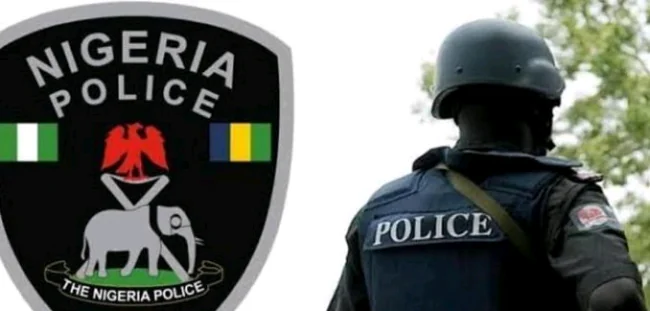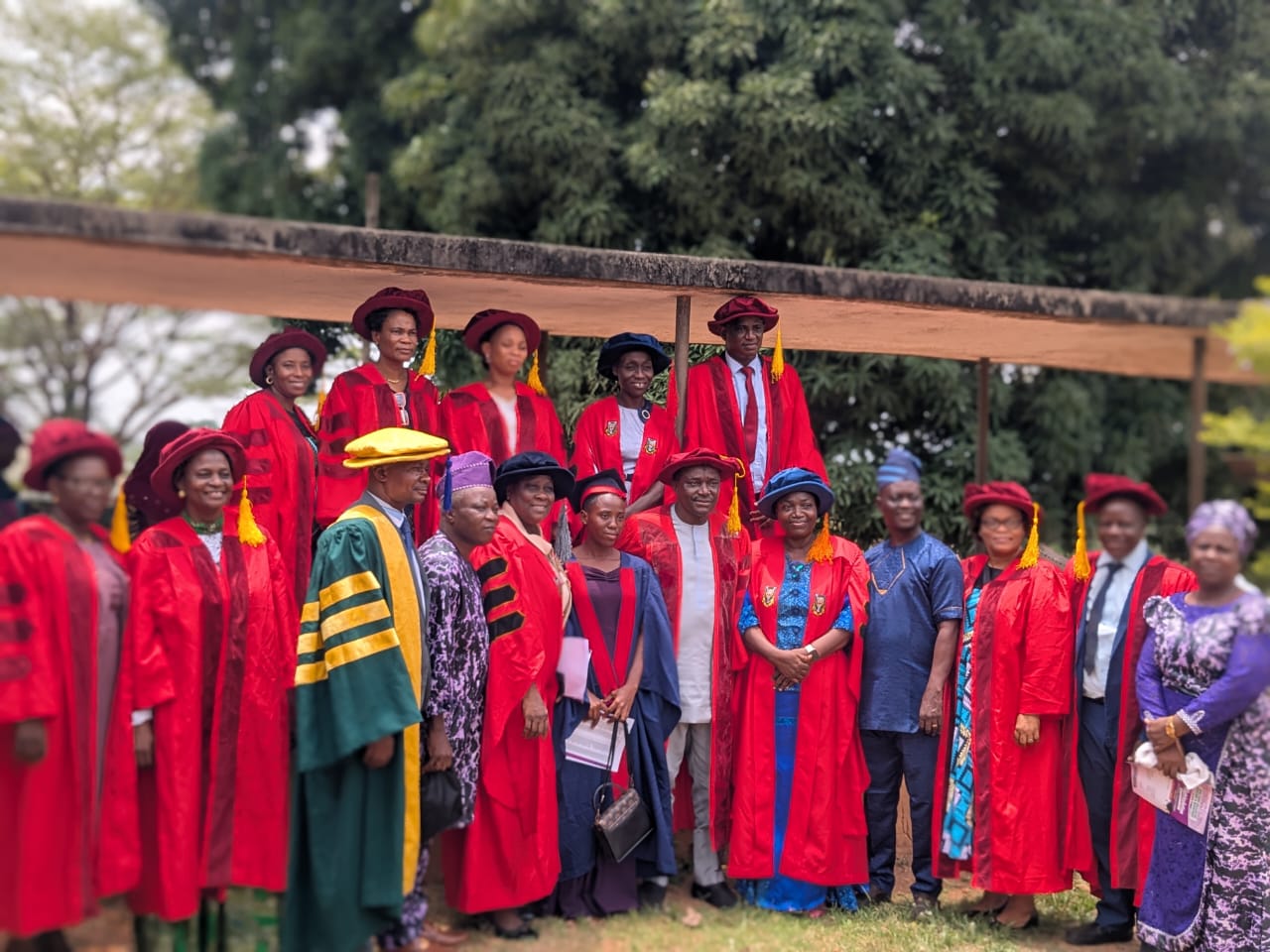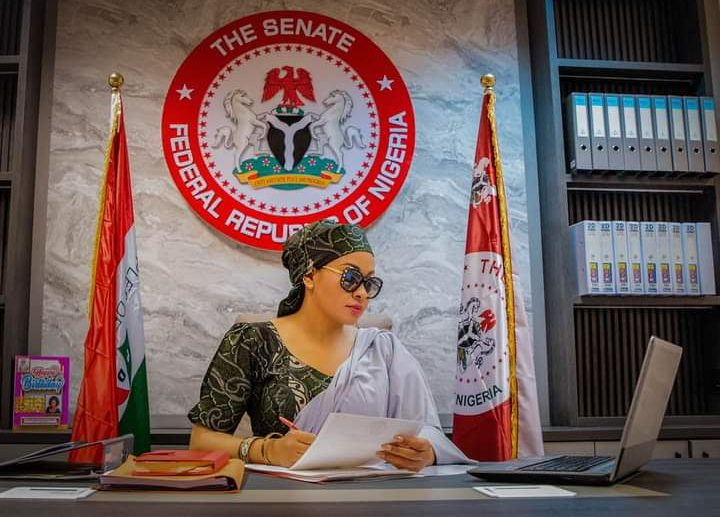News
EFCC charges higher institutions to introduce anti-corruption courses

As part of measures to curb the menace of corruption in the country, the Economic and Financial Crimes Commission, EFCC has charged higher institutions to introduce anti-corruption courses as a major course for all the first year students.

EFCC said the course would properly equip undergraduates higher and tertiary institutions with the necessary knowledge and understanding about the pervasive issue of corruption in the country and the significant roles they can play in combating it.

A statement on Tuesday by the EFCC’s spokesperson, Dele Oyewale, said the commission’s Kano Zonal Director, Ibrahim Shazali, made the call while receiving the Vice-Chancellor of the Yusuf Maitama Sule University, Prof Mukhtar Kurawa in his office.
“Given the alarming rate of corrupt practices that continue to hinder Nigeria’s socio-economic growth and stability, the EFCC believes that the educational sector holds a vital responsibility in shaping the moral fabric of future leaders.
“An anti-corruption course will not only enlighten students about the detrimental effects of corruption but will also instil values of integrity, accountability and patriotism,” the statement quoted Shazali as saying.
Continuing, the Kano Director explained the rationale of his proposal, saying, “I think it is important to introduce anti-corruption studies in the university system and make it a prerequisite alongside general studies at 100 level for every student to have an idea about corruption and what it takes to be of good character.”
He further disclosed that the EFCC in its public enlightenment and engagement campaigns, already has Integrity Clubs and Zero Tolerance for Corruption Clubs in primary, secondary and tertiary institutions respectively, and assured the VC that such clubs would soon be established in Yusuf Maitama University.
On the issue of corruption, Shazali enjoined the VC to be diligent, especially in the bursary and procurement departments of the university as those two departments are more vulnerable to corruption according to facts available to the EFCC.
Earlier in his opening remark, Kurawa disclosed that the university has recently established the Department of Cybersecurity to address the pressing need for skilled professionals in the field of information technology and security.
“The proliferation of cyber threats, data breaches and online fraud pose significant challenges to individuals, businesses and government institutions in Nigeria and around the world,” he said.
He sought the establishment of a forensic laboratory for equipping students with the practical skills and necessary tools to combat cyber-related challenges, urging the Kano Command of the EFCC to come to the university’s aid to meet the need.

News
Police arrest 12 suspects in connection with Kaduna mosque attack

Twelve persons have been arrested by officers of Kaduna State Police Command in connection with attack on a mosque which killed a worshipper during the Tahajjud prayer at Rigasa, in the Igabi Local Government Area of the State.

In a statement by the Command on Friday by the Spokesperson, DSP Mansir Hassan, and made available to journalists in Kaduna on Friday, said hoodlums’ attack on the mosque led to the death of a worshipper.

The statement noted that, “On 21st March 2025, at about 0200 hours, the police received a distress call from a m
concerned citizen, reporting that a large group of armed hoodlums had mobilised from Malalin Gabas, Tudun Wada, Rafin Guza, and Unguwar Baduko areas to attack worshippers performing Tahajjud prayer at Layin Bilya, Makwa Road, Rigasa, Kaduna.
“Upon receiving the report, the Divisional Police Officer (DPO) led a team of officers, accompanied by the Commander of the Civilian Joint Task Force (CJTF), to the scene in an attempt to apprehend the suspects.
“However, before their arrival, the assailants had already stabbed one Usman Mohammad, a 23-year-old victim, with a sharp knife. Despite being rushed to the hospital for urgent medical attention, he succumbed to his injuries hours later and was confirmed dead by the attending doctor.”
In response, the police swiftly apprehended twelve suspects who confessed to having participated in the attack and recovered several weapons from them.
A full-scale investigation has been launched to uncover the full details of the incident and ensure justice is served.
rom engaging in these criminal activities, stating that they will face the full weight of the law if caught.

News
Oyo College of Nursing matriculates 147 students as Governor Makinde urge students to uphold ethics

The Oyo State College of Nursing and Midwifery, on Friday, held its second matriculation ceremony, with the Oyo State Governor, Engr. Seyi Makinde, as the special guest of honour.

The event was held at the main auditorium of the College at Eleyele, Ibadan.

Speaking at the event, Governor Makinde represented by the Commissioner for Education, Science and Technology, Prof. Soliu Abdulwaheed Adelabu said the future of healthcare in Nigeria has taken a significant step forward with the intake of 147 new students of nursing program.
“This matriculation ceremony, marking the college’s second for the national diploma program, is a significant milestone for these aspiring nurses as they began their journey to become healthcare professionals”, he said.
He congratulated the matriculants, encouraged them to embrace every lesson with an open mind, and shun examination malpractices.
Governor Makinde emphasized the importance of resilience in the nursing profession, urging them to uphold the college’s high standards of virtue and ethical conduct.
The Governor further reiterated his administration’s committment to the education system in Oyo state, especially the nursing education.
He commended the Provost and the college’s staff for their dedication to fostering excellence, noting the significant progress made by them to elevate the college to its new heights.
In her speech, the Provost of the College, Dr. Gbonjubola Owolabi also extended her congratulations to the students, urging them adhere to the college’s rules, and strive to be ambassadors for the institution.
She said, “Let me remind you, our matriculation students, that you are now ambassadors of this great institution. Let excellence be your watchword, and may you go on to make remarkable contributions to the Nursing profession and society at large.”
She encouraged the students to prioritize their studies and dedicate themselves to achieving their academic goals.
The Provost said the Oyo state College of Nursing and Midwifery stands as a beacon of academic excellence, committed to producing highly skilled and compassionate nurses who will make a difference in the world.
She also said, “our curriculum is designed to equip you with the necessary theoretical knowledge, practical skills, and ethical grounding essential for success in the nursing profession.”
Dr. Owolabi praised Governor Seyi Makinde for his unwavering supports and commitment to the development of the institution. 
She pointed at the avalanche of approvals and infrastructural advancements granted to the college under Makinde’s administration.
The Director, Nursing Services, Dr. Arinade Oyebode enjoined the students to get acquainted with the ethics of Nursing profession.
She also encouraged them to study hard, while they put God first in their academic activities.
A Professor of Nursing from the University of Ibadan, Prof. Chizoma Ndikom encouraged the students to prioritize their studies and dedicate themselves to achieving their academic goals.
The event was filled with excitement and anticipation as a new student, Islamiat Lawal was rewarded by the Commissioner, the Provost, and other guests for her adherence to punctuality.

News
Court blocks INEC from receiving petition to recall Senator Natasha from Senate

Reprieve came the way of Senator of Natasha Akpoti-Uduaghan as the Independent National Electoral Commission, INEC has been restrained from receiving petition to recall Senator representing Kogi Central Senatorial District in the 10th Senate, Natasha Akpoti-Uduaghan.

This followed an interim injunction granted on Thursday by the Federal High Court sitting in Lokoja, capital of Kogi State on Thursday.

The Court also restricted INEC staff, agents, privies or assigns from accepting or acting on any petition containing fictitious signatures of purported members of Kogi Central Senatorial District and conducting any referendum upon such pending the determination of the Motion on Notice to the same effect.
Court’s interim order paper made available to journalists in Lokoja on Friday, indicated that the order was granted following an Ex-parte application for interim injunction supported by an Affidavit of Extreme Urgency together with other court processes sworn to by Anebe Jacob Ogirima for himself and four others who are registered voters and constituents of Kogi Central Senatorial District of Kogi state.
Counsel to Senator Natasha, Smart Nwachimere, Esq of West-Idahosa, SAN & Co. moved the application in Court.
The case has been adjourned to May 6, 2025, for a report of service and further mention.
Reacting to the development, a pressure group, Action Collective, praised the judiciary for granting the order.
The group’s coordinator, Dr. Onimisi Ibrahim, said in his reaction that, “the order will further expose impunity of some sponsored individuals behind the failed plot to recall Senator Natasha.”

-

 News4 days ago
News4 days agoBill to establish National Cashew Production and Research Institute in Kogi passes first reading in Senate
-

 Security1 week ago
Security1 week agoNigerian Coast Guard: Citizens warned against extortion as passage of bill is being awaited
-

 Politics1 week ago
Politics1 week agoRetired military officer, colonel Gbenga Adegbola, joins APC with 13,000 supporters
-

 Politics1 week ago
Politics1 week agoCPDPL accuses Adeyanju of orchestrating smear campaign against FCT Minister Wike
-

 News4 days ago
News4 days agoShehu Sani debunks Governor Uba Sani’s alleged diversion of LG funds, challenges El-Rufai to publicly tender evidence
-

 News3 days ago
News3 days agoPlateau gov’t expresses concern over violence in Shendam LGA, calls for calm
-

 News4 days ago
News4 days agoReport of attack on Wike’s Port Harcourt residence false, misleading – Police
-

 Sports5 days ago
Sports5 days agoMerino gives Arsenal win over Chelsea





















